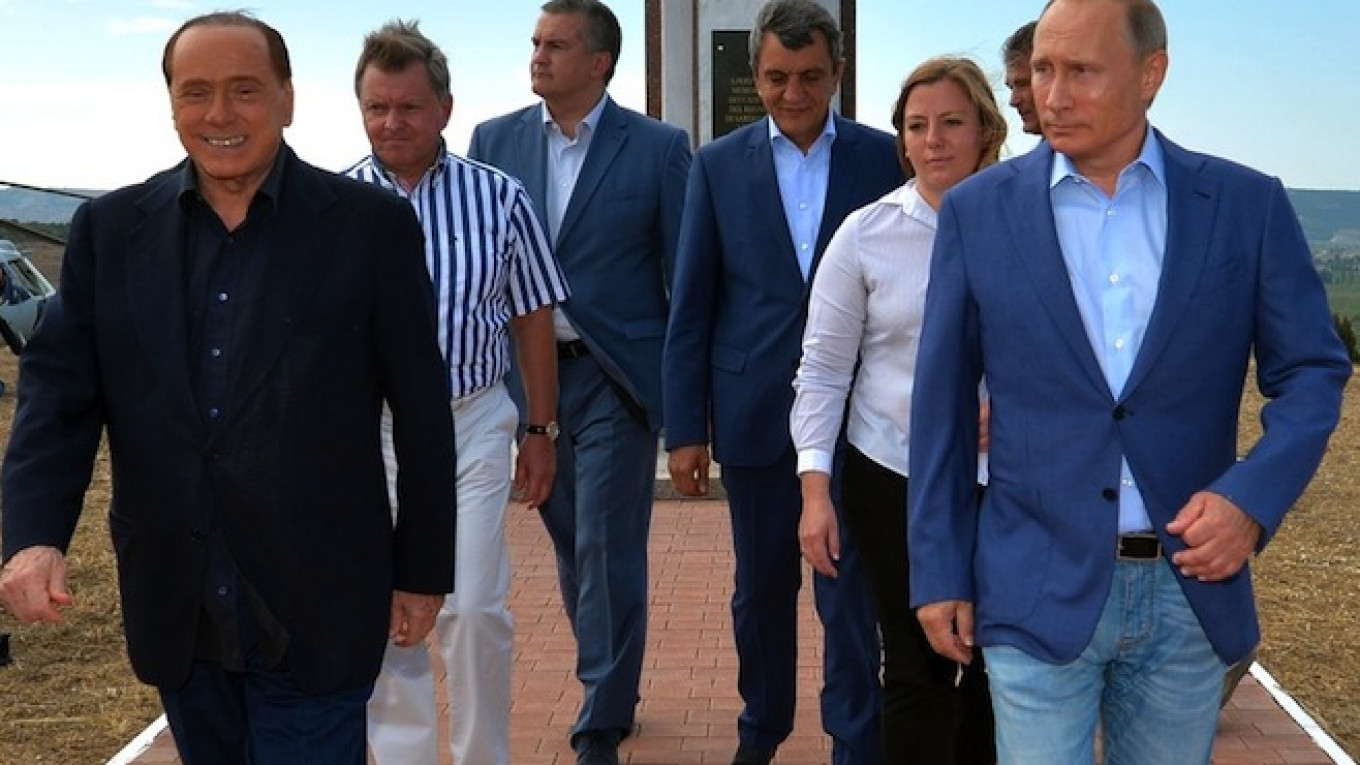YALTA, Crimea — Former Italian Prime Minister Silvio Berlusconi became the most prominent Western politician to visit Russian-annexed Crimea when he strolled beside the Black Sea on Friday with Russian President Vladimir Putin.
Western visitors have been rare since Russia seized Crimea from Ukraine in March 2014. The takeover drove relations between Moscow and the West to their lowest point since the Cold War era, and prompted the United States and European Union to slap economic sanctions on Russia.
See the photo gallery: Putin, Berlusconi Get Warm Reception on Trip to Crimea
Putin and Berlusconi, known for their warm rapport going back more than a decade, laid flowers at a monument commemorating soldiers who fell in a 19th-century war over Crimea. They included troops of the Kingdom of Sardinia, part of modern-day Italy.
Short footage run by Russia's state TV broadcaster showed Putin telling Berlusconi he wanted to find out the names of the Italian soldiers and imprint them on the memorial.
As part of a joint two-day tour of Crimea, the two men then sat down in an open-air restaurant for a meeting with local residents of Italian origin.
A crowd of several hundred along the way cheered Berlusconi and Putin, who at one point took a small girl in his arms. Both took pictures with residents.
Moscow played up a visit by several French parliamentarians to Crimea this summer as it attempts to win international recognition of the annexation.
The scandal-prone Berlusconi was Italy's premier on four occasions and was ousted finally in 2011 in the midst of the euro-zone financial crisis. He now commands a party largely in disarray and falling in the polls.
A Message from The Moscow Times:
Dear readers,
We are facing unprecedented challenges. Russia's Prosecutor General's Office has designated The Moscow Times as an "undesirable" organization, criminalizing our work and putting our staff at risk of prosecution. This follows our earlier unjust labeling as a "foreign agent."
These actions are direct attempts to silence independent journalism in Russia. The authorities claim our work "discredits the decisions of the Russian leadership." We see things differently: we strive to provide accurate, unbiased reporting on Russia.
We, the journalists of The Moscow Times, refuse to be silenced. But to continue our work, we need your help.
Your support, no matter how small, makes a world of difference. If you can, please support us monthly starting from just $2. It's quick to set up, and every contribution makes a significant impact.
By supporting The Moscow Times, you're defending open, independent journalism in the face of repression. Thank you for standing with us.
Remind me later.






